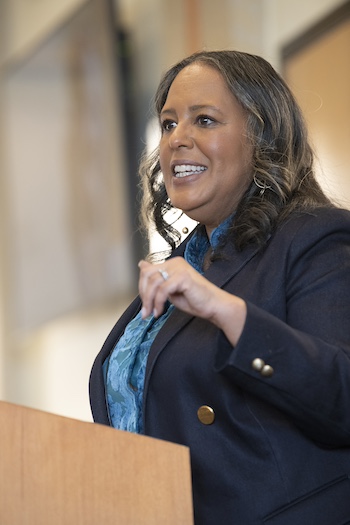By: Joanne Morrison
 Intimate partner violence (IPV) is a devastating societal issue that affects individuals across the globe, transcending geographic, economic, and demographic boundaries. Yet, certain groups, particularly those from marginalized communities, face a disproportionately higher risk and suffer more severe consequences.
Intimate partner violence (IPV) is a devastating societal issue that affects individuals across the globe, transcending geographic, economic, and demographic boundaries. Yet, certain groups, particularly those from marginalized communities, face a disproportionately higher risk and suffer more severe consequences.
Tania Araya, MSW, a notable expert and 1995 alumna of the University of Maryland School of Social Work, addressed these concerns in her keynote speech during the school’s recent homecoming event. Araya is the director of programs at TurnAround, Inc., responsible for the oversight, development, and management of legal advocacy, case management, and economic empowerment programming for survivors of human trafficking and sexual and intimate partner violence in Baltimore City, Baltimore County, and Howard County.
In her presentation, Araya highlighted the systemic obstacles that hinder the effective prevention and treatment of IPV.“ We need to be really honest about what those barriers are” she emphasized, outlining the critical need for a frank and comprehensive discussion on this topic.
